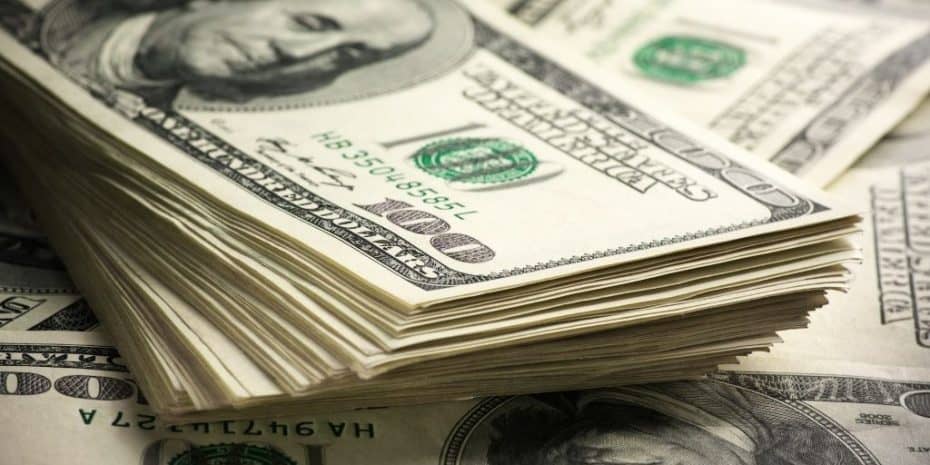What is Flash Cash?
REtipster does not provide tax, investment, or financial advice. Always seek the help of a licensed financial professional before taking action.
Flash Cash Explained
Flash Cash (also known as transactional funding or same-day funding) is a jargon term used in the real estate industry for money that is borrowed for a very short timeframe (usually 24 – 48 hours) to conduct a double closing.
Often used by real estate wholesalers, flash cash is used to buy a property from a motivated seller at a discounted price (the A-to-B transaction) and then sell the property the same day to an end-buyer who is happy to pay a higher price (the B-to-C transaction). The end buyer’s funds are used to pay back the flash cash loan immediately after they receive the sale proceeds, and the difference is kept by the investor/wholesaler as their profit.
Flash cash is only used when both closings are scheduled back-to-back, so the money is paid back almost immediately (hence the term “flash cash”).
Access to this kind of short-term financing is what allows a real estate wholesaler to buy and sell a property very quickly without using any of their own money. Without access to this kind of same-day funding, the real estate wholesaler would have to close by assigning the contract (a different closing maneuver that comes with its own set of unique challenges), using their own cash to conduct a traditional closing or finding some other source of loan proceeds, like a home equity line of credit or business line of credit.
RELATED: Fund & Grow Review: 0% Interest Loans for Real Estate Investing and Beyond
How Does Flash Cash Work?
A flash cash loan is typically provided by a hard money lender or private money lender and is only used when there is an established and well-documented end buyer in place. This end buyer should be ready to buy the subject property from the wholesaler immediately after the wholesaler purchases the property from the original seller, and the sale proceeds from the end buyer are used to pay back the transactional funding loan.
Transactional funding can be used with any type of real estate:
- Residential
- Commercial
- Industrial
- Land
As long as the closing agent is willing to facilitate both transactions and the lender can verify all the important details before dispersing the funds, the deal can happen.
When flash cash is employed to close a deal, the process typically follows these steps:
- A real estate investor/borrower finds a motivated seller and both parties agree to a below-market purchase price (the A-to-B transaction).
- When the investor/borrower finds an end-buyer, they will sign a new purchase agreement (the B-to-C transaction) to purchase the property at a higher price and close on the same day as the A-to-B transaction.
- The investor/borrower secures the “flash cash” loan to buy the property from the seller and take title to the property.
- When both transactions are complete, the investor/borrower repays the flash cash loan from the proceeds of the B-to-C transaction and keeps the difference as their profit.
How Much Does Flash Cash Cost?
Even though flash cash is only needed for a very short time, it still comes at a cost.
The cost is determined by the lender, the borrower, the loan amount and any other inherent risks associated with the deal. Many flash cash lenders will charge a flat fee of 1% – 2.5%, depending on the loan amount required.
A flash cash loan is typically enough to cover 100% of the purchase price. The lender typically expects to be repaid within 1 to 3 days (sometimes up to a full week), although there are some lenders who offer extended transactional loans for as long as 360 days.
RELATED: Bridge Loans 101: The A – Z Guide to Bridge Financing
For example, a flash cash lender might charge 2% plus 12% annualized interest. If an investor borrows $100,000, the cost of the loan would be $2,000 plus $32.85 per day in interest.
Some lenders skip the interest and charge a flat “transaction fee,” which is paid at closing.
How to Get a Flash Cash Loan
Most lenders who participate in transactional funding or “flash cash” will require the investor/borrower to have an end-buyer under contract with proof of the end-buyer’s funds to complete the B-to-C transaction (proof of the end-buyers earnest deposit may also be needed).
The lender may also pull a credit report and background checks on the borrower to verify there are no background issues, collections or judgments against the borrower. They may also do some basic due diligence on the property itself, including a desktop valuation and taking pictures of the interior and exterior.
The lender is entitled to evaluate a borrower in accordance with the standard 5 C’s of Credit (which includes pulling a credit report and verifying the value of the collateral), but since there is such a heavy reliance on the borrower’s take-out financing (i.e. – the end buyer’s purchase proceeds and ability to follow through), it’s very important for the lender to verify the borrower’s ability to use the end-buyer’s proceeds to pay back to loan quickly.
In the event that the investor/borrower closes on the A-to-B transaction, but the end-buyer fails to close on the B-to-C transaction (leaving the borrower unable to pay back to loan immediately, as agreed), the lender could take corrective action such as:
- Requiring the borrower to refinance their short-term loan with a traditional lender.
- If the condition of the property or the credit of the borrower does not allow for conventional refinancing, the lender could take possession of the property and rehab and resell it.
- The lender could also wholesale the property to another borrower and charge an origination fee and interest for their time.
Since the lender’s first preference is to be paid back immediately, as agreed – they will typically push for a conventional lender to refinance the debt. This is why some flash cash lenders will take extra steps to verify the borrower’s creditworthiness and/or the value and condition of the property.
Flash Cash Advantages
Access to flash cash provides several advantages to an investor who is working as a wholesaler or “middle man” in a double closing (aka – simultaneous closing).
- With a double closing, the investor can keep a clear separation between the seller and the end-buyer, which reduces the opportunity for both parties to cut the investor out of the deal.
- Flash cash is typically for 100% of the purchase price. The investor doesn’t have to put down any of their own money to complete the deal.
- It puts the investor on equal footing with cash buyers, providing a competitive edge to close the sale.
- Flash cash can be used for any type of property—vacant land, single or multi-family homes, condos, REOs, and all types of commercial property.
- Flash cash lenders usually do not require title insurance or appraisals, which means fewer administrative costs to cut into profits.
- Funding a flash cash loan takes place in a matter of days which makes it ideal for a quick closing.
- Flash Cash isn’t necessarily cheap, but it’s less expensive than hard money loans and fees are paid at closing.
While there are clearly some advantages to this creative financing strategy, flash cash isn’t the right fit for every transaction.
Flash Cash Disadvantages
Although the advantages tend to outweigh the disadvantages, it pays to know the potential pitfalls of using flash cash to fund a double closing:
- As the name implies, flash cash is very short-term loan. Most lenders require full repayment within 1 – 3 days (some transactional lenders will offer extended terms at a higher rate).
- Some title companies and end-buyer lenders may not be willing to work with this type of funding.
- If the deal doesn’t close in the agreed-upon timeframe, additional fees and interest can get expensive.
If the borrower isn’t able to pay back the loan as quickly as needed or if the closing agents has issues with this type of transaction, other financing options may be worth considering.
Flash Cash Alternatives
If a real estate investor can’t close quickly or they are unable to work with a title company or closing attorney who will deal with this kind of creative financing, other funding sources may be a better fit. Some common examples are:
- Hard Money Loans
- Private Money Lenders
- Joint-Venture Capital
- Bank Loans
- Home Equity Lines of Credit
- Business Lines of Credit
If a real estate deal shows enough value, there is usually a way to get the deal done, it’s just a question of how many options are investigated and whether the value is apparent to all parties involved.










